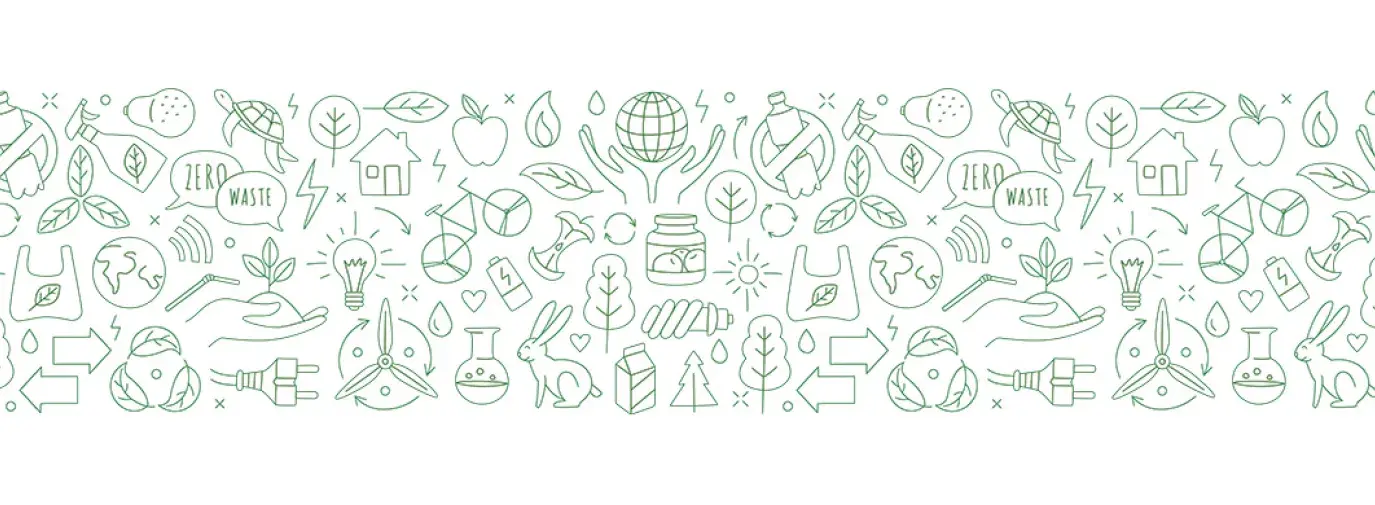
All natural, Eco-friendly, Earth-safe…
What do all these words have in common?
They don’t mean anything! These marketing buzzwords are meant to grab your attention, but none prove the sustainability of the product or the company.
People are more interested in sustainable products than ever—65% of consumers believe brands have as much responsibility as governments to create positive environmental change, according to Havas Group Worldwide—and some companies are looking to make a pretty penny off those good intentions.
Greenwashing is a marketing tactic designed to make customers believe that a company has made an eco-friendly product or is an eco-friendly company, when that's not really the case, or the company has just done the bare minimum. It often involves making false or misleading claims, or even using green-colored packaging or similarly nature-inspired marketing to fool customers into buying the product and/or paying more for it.
The rule of three T’s can help you sniff out greenwashing:
Trustworthy Certifications
Certifications are the easiest and quickest way to determine if a company is sustainable. To earn certification, a company’s operations and supply chains are vetted by an external party.
Companies that have earned certification will put the label on their products and website, making it simple for shoppers. Green America’s Green Business Seal, the Non-GMO Project, EWG Verified, USDA Organic, Leaping Bunny, Climate Neutral Certified are all examples of trustworthy certifications. To be a conscious buyer, getting to know these certifications will make it easier to spot a green business in the wild. EcoLabelIndex.com can help you determine which labels are fake and which are legitimate.
For Green America staff, certifications are the number one way to check for sustainability:
“When I'm researching a company, seeing a trusted third-party certification is key.” —Anya Crittenton, editorial and Green Business Network communication associate.
“I look for logos on packages like Non GMO, Fair Trade Certified, and Rain Forest Alliance. For example, I saw the term “grown respectfully” on Nestle coffee packaging—but it had no further qualifiers and I have no way of knowing what it means. The Target store brand coffee I buy has the fair trade logo on the side of the package and since the mark is there I can look up those standards.” —Molly Bouffard-Briglia, senior operations and special projects manager, Center for Sustainability Solutions.
Transparency
While a third-party verification is a great way to tell if a company is sustainable, small businesses cannot always afford the steep cost of certification.*
That doesn’t mean the business is greenwashing, however. If a company is truly sustainable, it won’t have anything to hide. It is much easier to contact the owner of a small business than a large corporation, so take advantage of this to ask them questions! Ask about its sourcing, production, ingredients, and more. Inquiring lets the company know that this is what its buyers care about. Small businesses tend to adapt quickly, making them more likely to listen to buyer concerns.
Sometimes, this information is listed on the company website. Associations such as US SIF and Fair Trade Federation can help verify these claims.
Timeliness
Many companies are setting green goals, such as “eliminating all paper by 2024” or “going carbon-neutral by 2030.” But a goal is meaningless without a plan. How the company is going to achieve its sustainability goals is as important as what the goal is. Additionally, the plan should be appropriate for the size of the company.
If you think a company can do better, write a letter or tag the company on a social media post. Companies are at the whim of their consumer base; an effective letter can help sway them in the right direction. Learn how to write an effective letter at greenamerica.org/companyletter and visit our website to join thousands of conscious consumers like you demanding better of Walmart, Amazon, and more on climate, labor, and racial justice.
Determining if a business is sustanable requires a little bit of research, but as an informed buyer, you have the power to choose companies that support your values. Vote with your dollars for a cause that you care about, such as sustainability, racial justice, and climate action.
*Green America’s Green Business certification is designed for small and mid-sized companies with certifications tailored for nearly 40 different industries. The Network is home to 2,000 socially responsible eco-enterprises. Find certified green businesses at GreenPages.org and view the certification standards at GreenBusinessNetwork.org.







